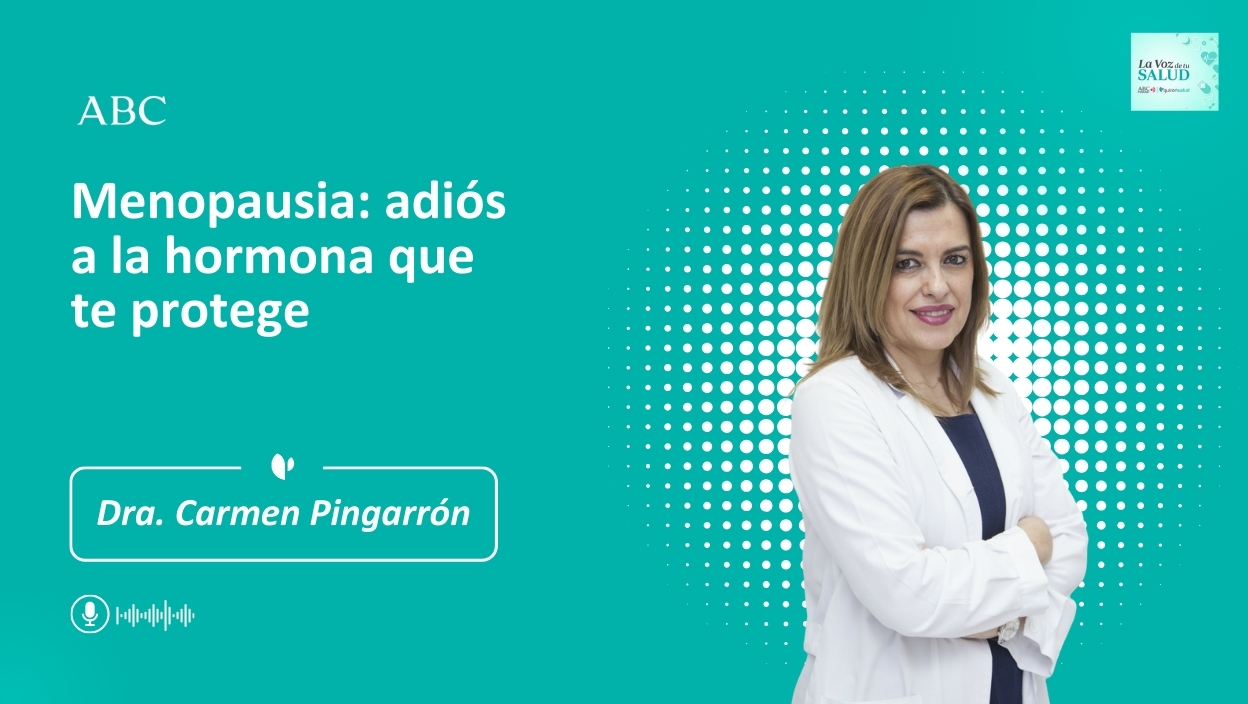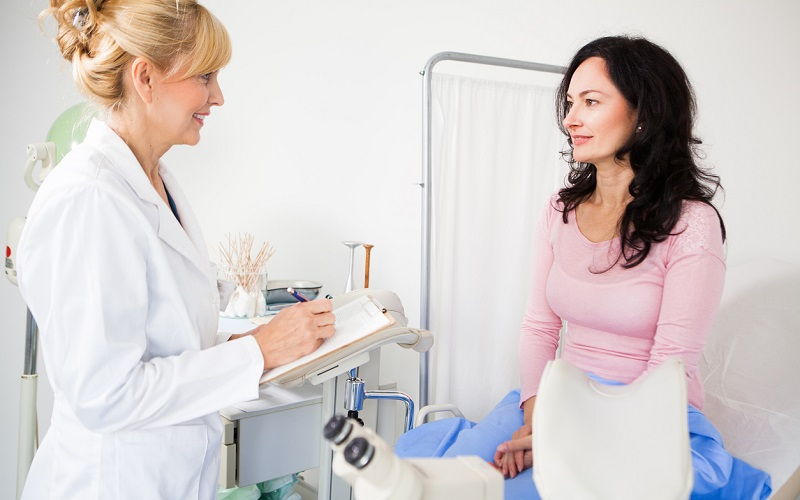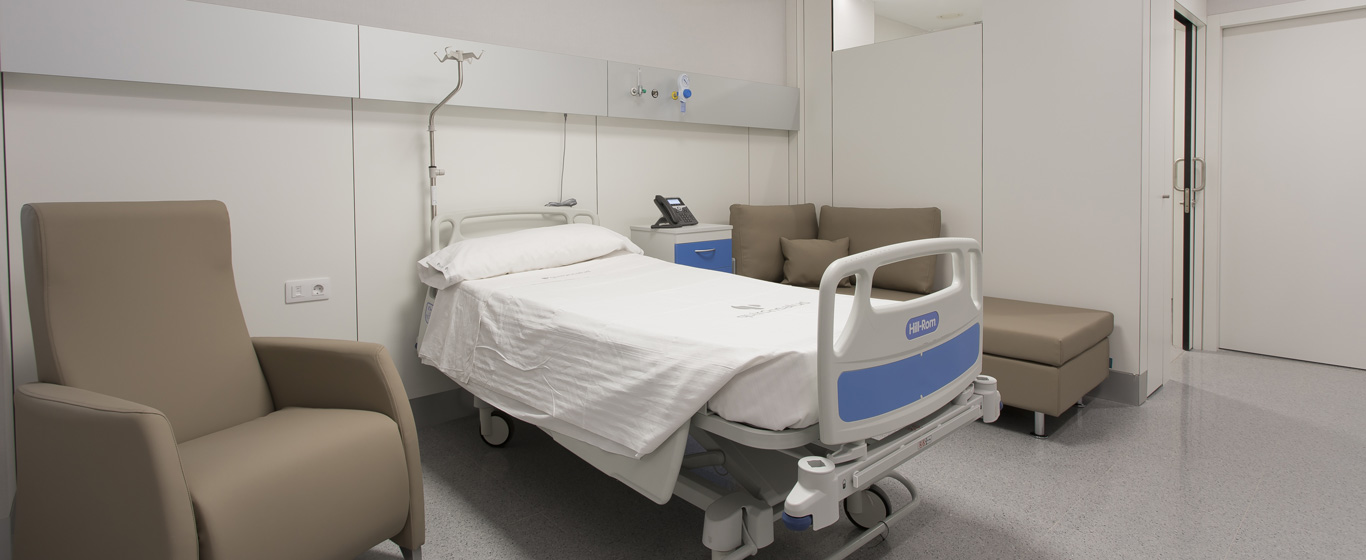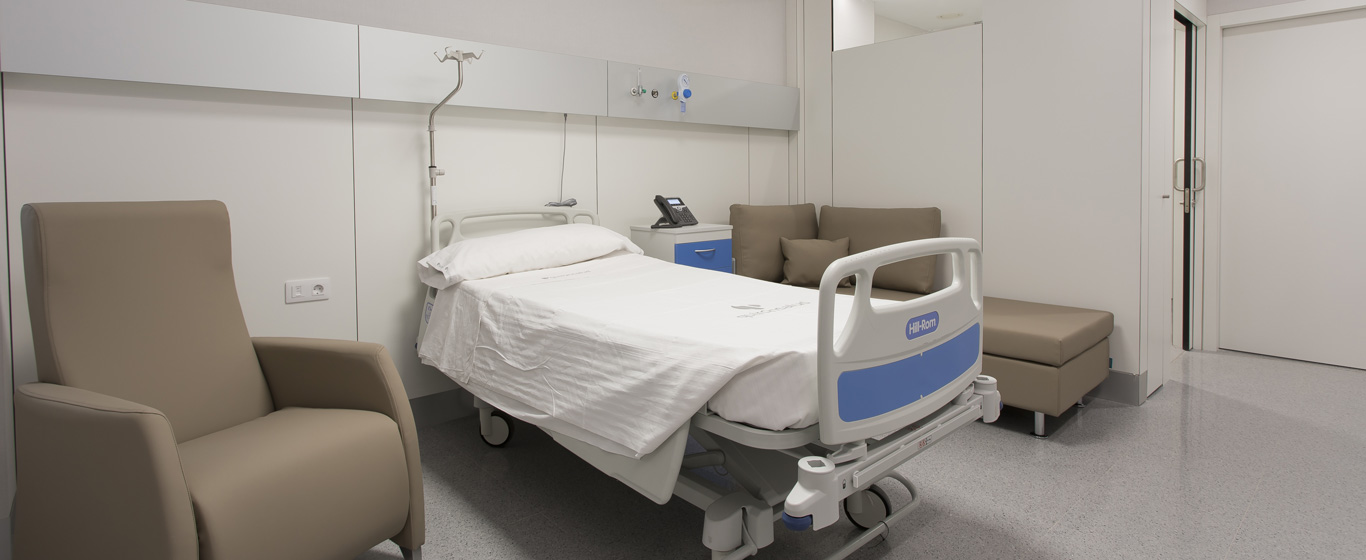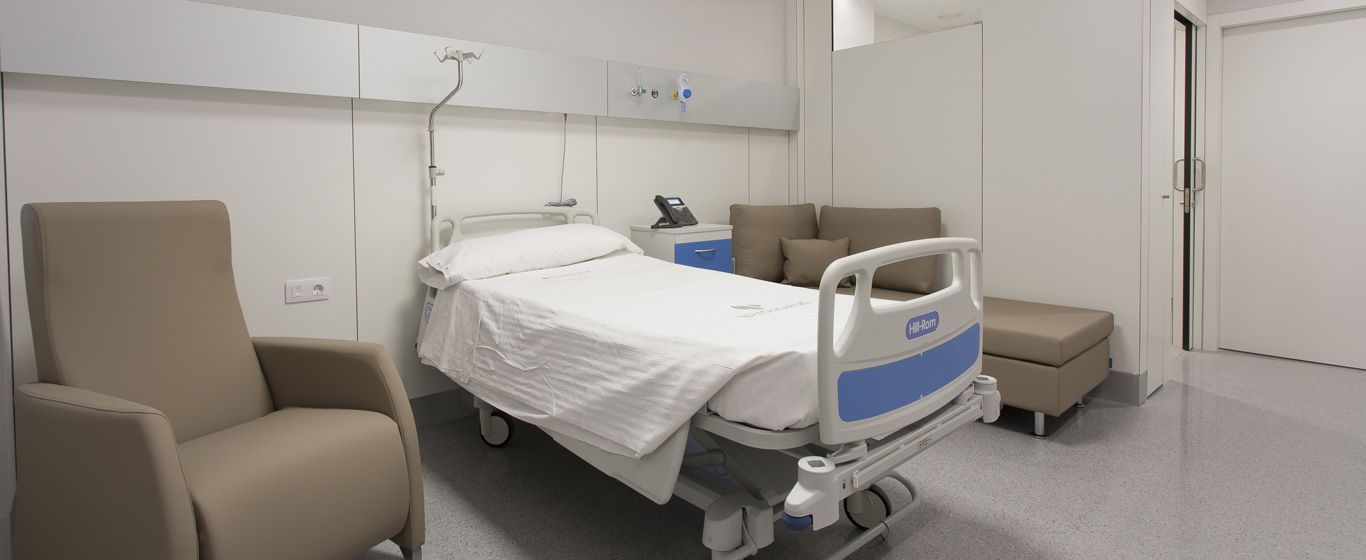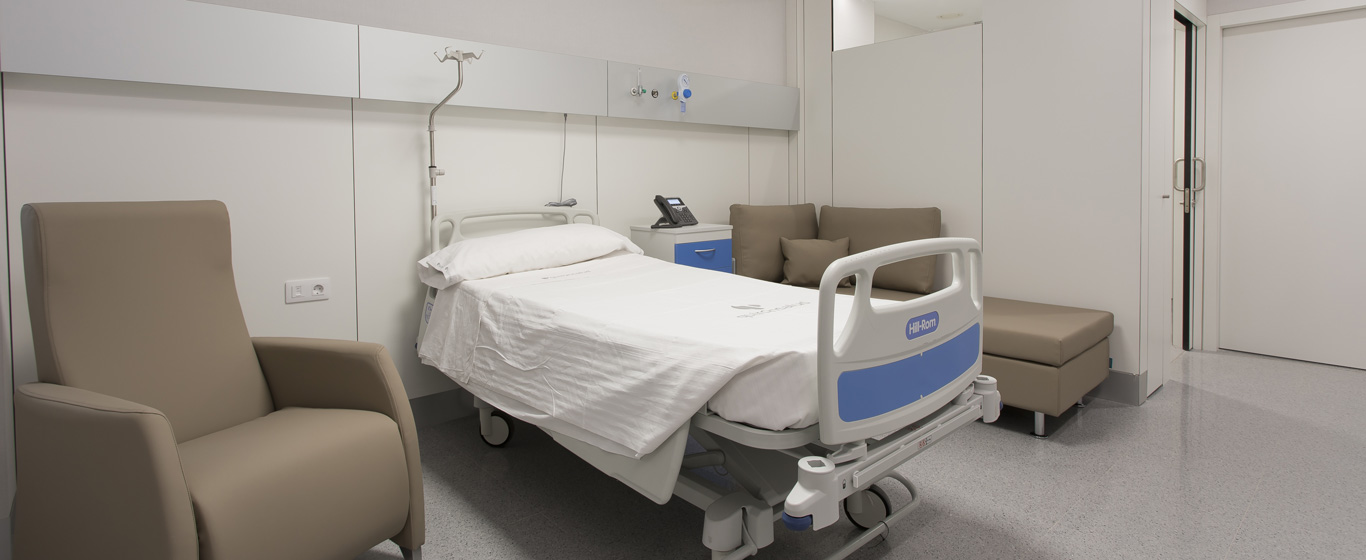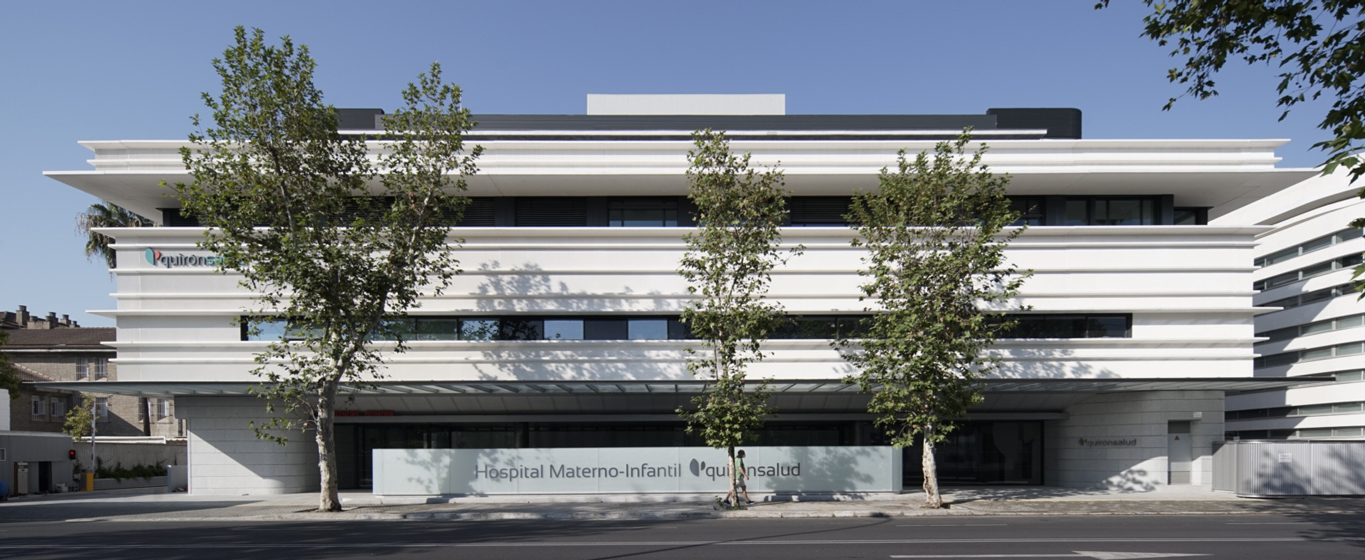Obstetrics and gynaecology
Find out more about the speciality of obstetrics and gynaecology. We talk to you about the diseases it treats and the most commonly used diagnostic methods and procedures, as well as what the consultation with the gynaecologist involves. Book your appointment at one of our hospitals.
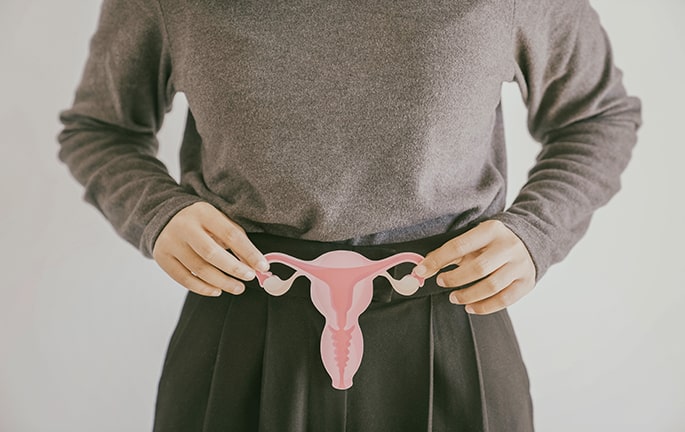
What is obstetrics and gynaecology?
On the one hand, gynaecology is the branch of medicine that specialises in the female reproductive system. Its main mission is both the prevention of diseases and the diagnosis and treatment of pathologies affecting the uterus, ovaries, vagina or breasts. Obstetrics, on the other hand, focuses on pregnancy, childbirth and the postpartum period.
The obstetrics and gynaecology speciality therefore offers comprehensive healthcare for women throughout all stages of their lives. At Quirónsalud, we also work alongside the speciality of assisted reproduction in cases where this expertise might be required.
What does obstetrics and gynaecology study?
The subspecialisation of our gynaecologists and obstetricians allows us to care for women much more specifically at particular times in their lives and to treat each organ according to its characteristics.
- Pregnancy: provides monitoring from planning to delivery, focusing mainly on prevention of problems, prenatal diagnosis, routine check-ups and preparation for childbirth.
- Childbirth and postpartum: aimed at accompanying the future mother in a humanized childbirth and includes different options for intrapartum pain management and anaesthesia service when requested. In addition, we provide breastfeeding support and promote wellbeing during the fourth trimester of pregnancy (puerperium), as well as emotional support.
- Menopause: focused on improving the quality of life and health of women in this period.
- Sexually transmitted infections: provides the necessary information about prevention and treats diseases resulting from unsafe sexual contact.
- Gynaecological pathologies: studies, diagnoses and treats diseases and disorders of the female reproductive system.
- Gynaecological oncology
- Endometriosis
- Pelvic floor
- Pathology of the lower genital tract
- Prenatal diagnosis
- Maternal–Foetal Medicine
- Regenerative gynaecology
- Assisted reproduction
Which patients is it for?
Obstetrics is a speciality that accompanies women who wish to conceive from those early moments, during pregnancy, childbirth and the postpartum period, with the aim of caring for their health and that of their future child. Gynaecology, on the other hand, treats patients with infections, diseases or disorders of the reproductive organs, and also conducts follow-up examinations to evaluate the health of the female reproductive system.
Techniques, procedures and diagnostic methods
Gynaecology and obstetrics procedures may be used to diagnose or treat diseases or situations that are out of the ordinary. The most widely used include:
- Pap smear or Pap test: test that analyses a sample of cells from the vagina and cervix to diagnose infections, malignant lesions or cancer.
- Mammography: breast x-ray performed to detect signs of breast cancer when symptoms have not yet developed.
- Hysterosalpingography: Contrast x-ray to observe the uterus and fallopian tubes, which enables the detection of obstructions or deformities.
- Abdominal or transvaginal ultrasound: diagnostic imaging test to check the condition of the cervix, uterus and ovaries. Can be performed through the abdomen (abdominal) or via the endocavity (transvaginal).
Diseases and symptoms
Main pathologies and diseases
The most common gynaecological diseases and disorders include:
- Endometriosis
- Pre-eclampsia
- Polycystic ovary
- Ectopic pregnancy
- Vaginal candidiasis
- Vaginitis vulvovaginitis
- Ovarian cyst
- Urinary incontinence
- Uterine fibroids
- Overactive bladder
- Gestational diabetes
- Vaginal infections
Symptoms related to gynaecological diseases
Some of the most common symptoms for which people refer to a consultation are:
- Nausea and vomiting
- Dysmenorrhea
- Dyspareunia
- Hirsutism
- Brown discharge
- Vaginal dryness
- Menstrual pain
- Intermenstrual bleeding
- Pelvic pain
- Hot flashes
- Amenorrhoea or lack of menstruation
- Heavy menstrual bleeding
- Fatigue
- Pain during urination
About the gynaecology and obstetrics consultation
We solve any doubts you may have before you see the specialist
At Quirónsalud, we always recommend regular gynaecological check-ups for prevention purposes. The first check-up is recommended at the age of 25, unless there are problems that require an earlier visit to the specialist. It is important to emphasise that annual check-ups are the best way to rule out the risk of certain female cancers such as cervical cancer, which is the clearest example of a type of cancer that can be successfully prevented.
What should you keep in mind?
The consultation with the gynaecologist varies slightly depending on the patient’s age. Your first visit often involves the doctor taking your medical and gynaecological history, and the physical examination usually consists only of an ultrasound scan.
Depending on the age and needs of each woman, the specialist will order any complementary tests considered necessary
What should I take to the appointment?
We recommend that you come to the appointment with a list of the symptoms you have noticed, if any, with the date of your last menstrual period and its duration, and the questions you want to ask the gynaecologist. It is also a good idea to bring any tests you have had.
You may receive a questionnaire a few days before your appointment asking about your medical history, usual medication and other specific questions that will allow us to anticipate certain aspects of your consultation, helping us to expedite and personalise your care. To do this, we recommend that you download the free Quirónsalud Patient Portal application, which will facilitate communication with your healthcare team.
You may receive a questionnaire a few days before your appointment asking about your medical history, usual medication and other specific questions that will allow us to anticipate certain aspects of your consultation, helping us expedite your treatment and offer you a more personalised care. To do this, we recommend that you download the free Quirónsalud Patient Portal application, which will facilitate communication with your healthcare team.

If you have any further questions, please contact us through the Patient Services telephone number: 900 301 013



